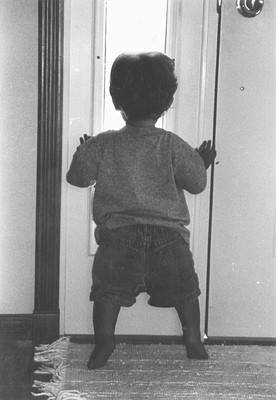All Nonfiction
- Bullying
- Books
- Academic
- Author Interviews
- Celebrity interviews
- College Articles
- College Essays
- Educator of the Year
- Heroes
- Interviews
- Memoir
- Personal Experience
- Sports
- Travel & Culture
All Opinions
- Bullying
- Current Events / Politics
- Discrimination
- Drugs / Alcohol / Smoking
- Entertainment / Celebrities
- Environment
- Love / Relationships
- Movies / Music / TV
- Pop Culture / Trends
- School / College
- Social Issues / Civics
- Spirituality / Religion
- Sports / Hobbies
All Hot Topics
- Bullying
- Community Service
- Environment
- Health
- Letters to the Editor
- Pride & Prejudice
- What Matters
- Back
Summer Guide
- Program Links
- Program Reviews
- Back
College Guide
- College Links
- College Reviews
- College Essays
- College Articles
- Back
Learning to Laugh
Last year I was reading the most embarrassing moments column in a popular magazine. A girl wrote in that her dad burped in front of her boyfriend as her most embarrassing moment. It was then I started listing my sister Gina’s worst moments. Her daily hours-long dishwasher vigil made the cut. Even the memory of finding my sister naked in my neighbor’s pool made me cringe. But the moment that topped my list was my sister’s resonating public performance of Springtime for Hitler from the musical The Producers in a beer hall in Munich.
Looking back on these memories, I can’t help but laugh. Some people call me a hopeless optimist. I don’t mind. As my grandmother once wisely put it, “What do you want me to do, cry?”
However, learning how to laugh has not always been so easy. It’s taken so much practice. Sometimes, I treasure my time away from my family. It’s so easy to be free and explore without ever thinking about anyone but myself. Having to deal with a disorder I could barely understand is hard. I always used to wonder, “Why Gina? Did my parents have Gina because they are the only people on the universe who could possibly deal with her?” It hasn’t helped that I could never really understand the disorder and its treatment. As a child, all I could do was be nice to Gina, give her hugs and attention. Playing with Gina was very unrewarding for me, as she was unresponsive to most of the people around her. Choosing to embrace her quirky moments was an act often used to mask the deeper concerns my parents had for Gina.
During my junior year, I decided to write my extended essay for the International Baccalaureate Program on Applied Behavioral Analysis (ABA), a form of behaviorism used to treat autistic children. I thought it would be easy to write about a treatment which I had watched Gina undergo since I was five. As I poured over the dozens of journal articles, I found that the study of this topic intrigued me, because not only could I apply personal insight, but also because I was fascinated by how people thought, why people thought, and where thought arises. How can a single sour patch kid after every right answer make a child speak? How can the seemingly harsh repetitions of trials really produce positive results?
I realized while studying this that I had integrated certain principles of ABA into my life without realizing it. I include positive reinforcement in the form of encouragement, repetition in the form of perseverance. I realize how important it is to study psychology not only to treat people like Gina, but also to understand the world around us.
Perhaps dealing with my sister’s disorder has made me a better person. How many people do you know that won’t get upset if their sister wakes them up at precisely four-thirty every morning? I am more humble, less assuming, less competitive, and more caring. Or maybe I have always been like this, and working alongside others and caring about their success brings out the best in me.

